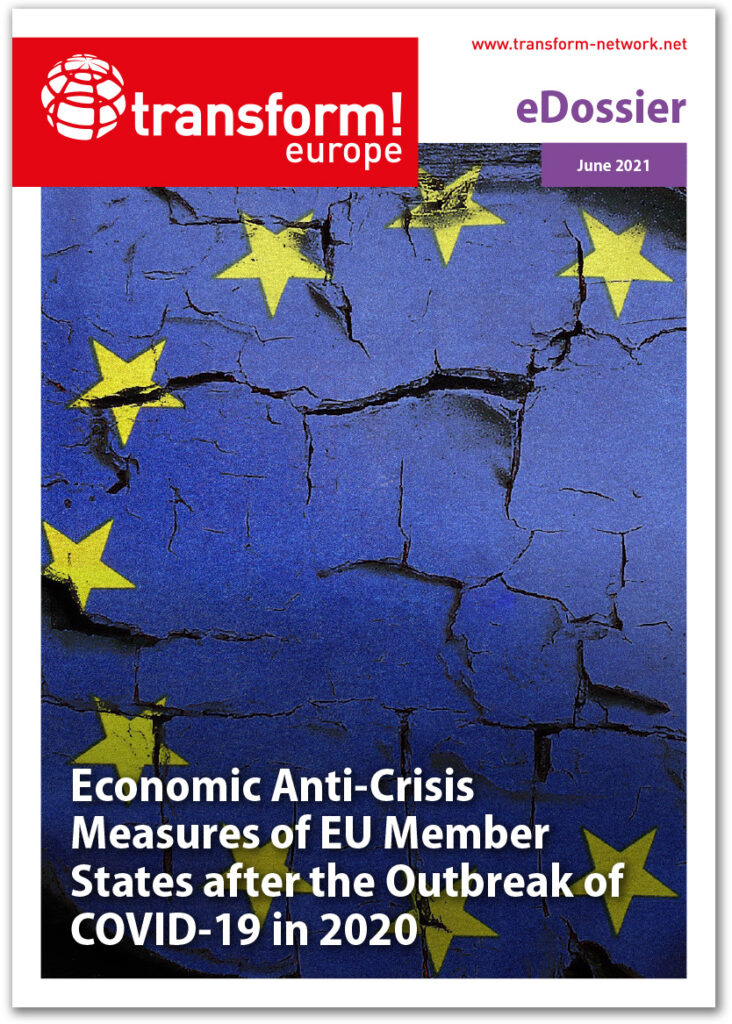A turn towards socio-ecological transformation or a continuation of the neoliberal overexploitation of people and nature? Study on the response of selected EU Member States to the outbreak of the corona crisis, commissioned by transform! europe.
The corona crisis has put Europe’s economies under enormous pressure. To cope with the crisis, aid programmes of enormous scope have been adopted by the national governments, which will have major impact on the future political and economic development of the individual countries and the EU as a whole.transform! europe has commissioned an analysis of the various economic measures taken by the following governments to support their economies at the outbreak of the pandemic: Czech Republic, France, Germany, Greece, Ireland, Italy, Poland, Portugal, Spain. The study also takes account of the European Union’s strategies to deal with the economic impact.
The main questions include:
- How are the aid programmes designed? Are the investments made on the demand side (consumption incentives) or on the supply side (measures aimed at stimulating investment by companies, the growth of companies, etc.)? Are there specific sectoral approaches formulated in the programmes?
- Do the programmes aim at a shift towards a sustainable economy?
- Are the programmes appropriate for protecting national companies from foreign takeovers?
- Do the programmes provide for the possibility of public ownership of companies, guaranteeing state influence?
- What role could trade unions play in the implementation of aid programmes?
Please find the ePaper on the left/below (mobile version) in ‘Documents’ (English, PDF).
Table of contents
Introduction: What have our states done in 2020 to support their economies?, by Roland Kulke
Spain: The Case of a Centre-Left Coalition Government, by Eduardo Sánchez Iglesias
Italy: Leaving industry alone, by Matteo Gaddi
Greece: Attacks on Workers and Environment, by Eleftheria Angeli
Portuguese Government defensive actions, by Mauricio Rezende Dias
Czech Republic: An Economic Colony without a Plan for National Development, by Ilona Švihlíková
Polish Government: Letting its people and its SMEs down, by Michał Menes
Ireland: Selling the Country to the Highest Bidder, by Emma Clancy
France: Supply Side & Technology – Sovereignty for the Few, by Pauline Debanes
Germany: Money as a Substitute for a Plan, by Michael Schwan
European Union strategies to tackle the economic impact at the outbreak of the COVID-Crisis, by Matteo Gaddi
